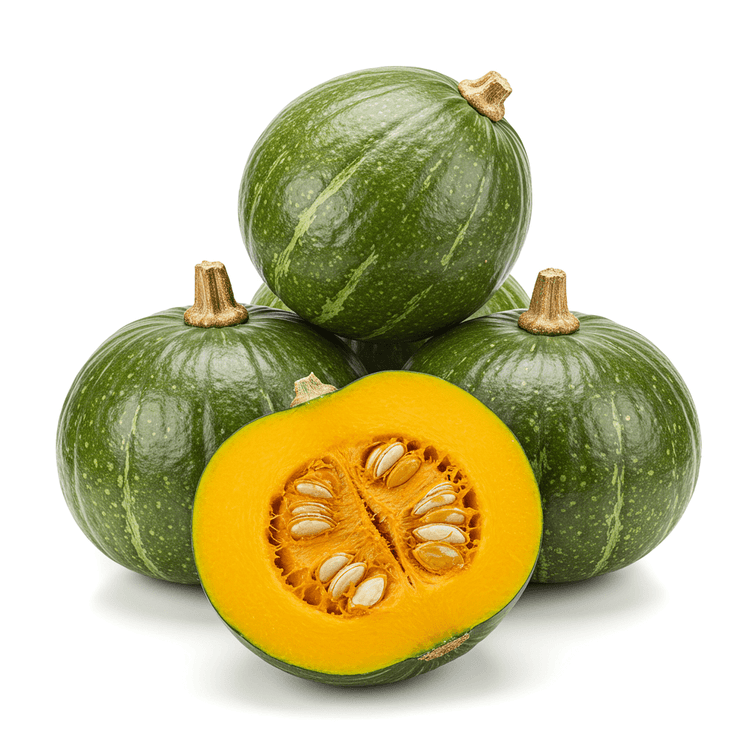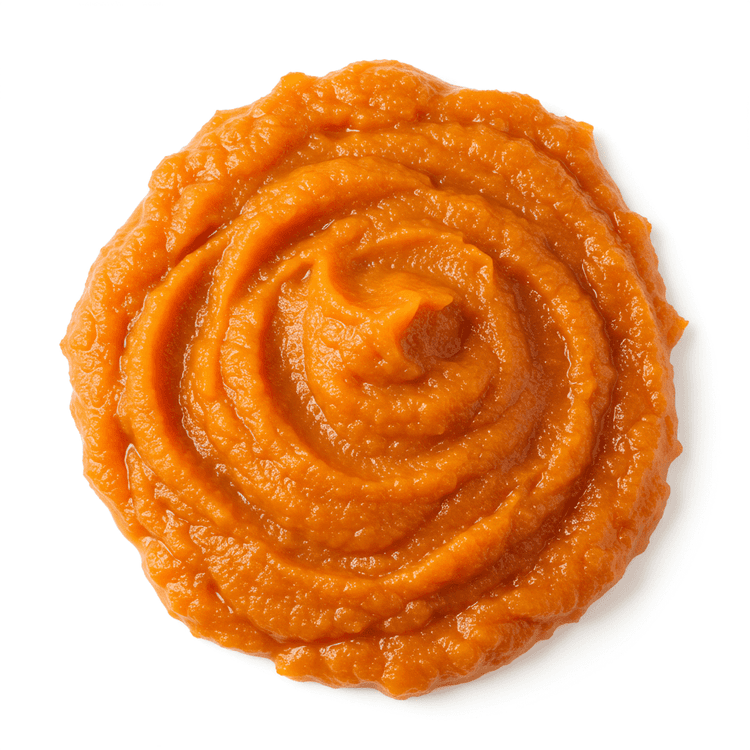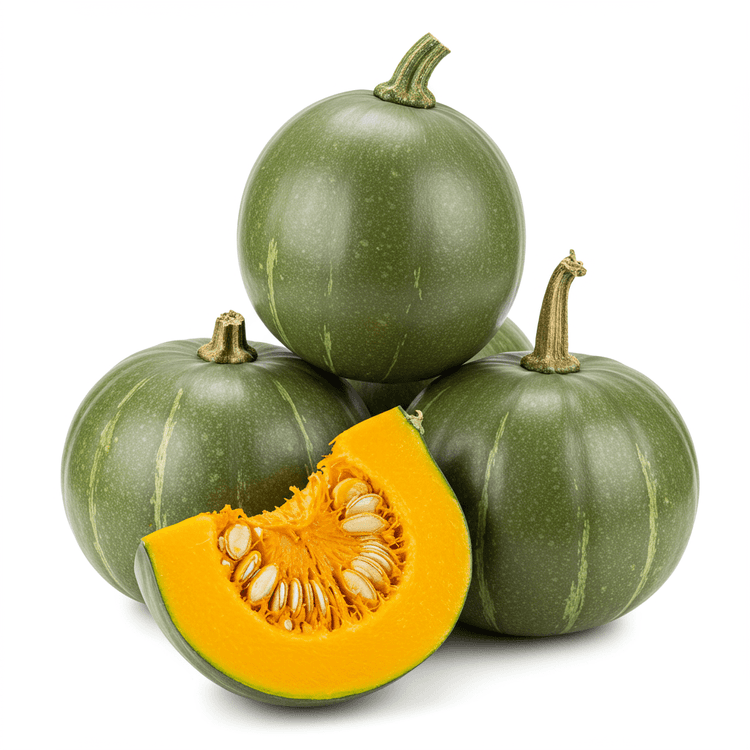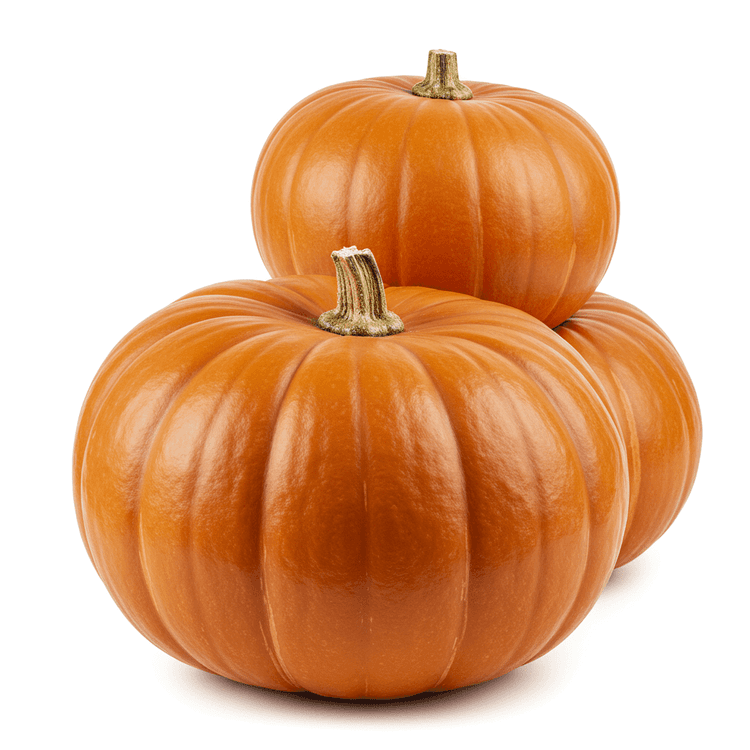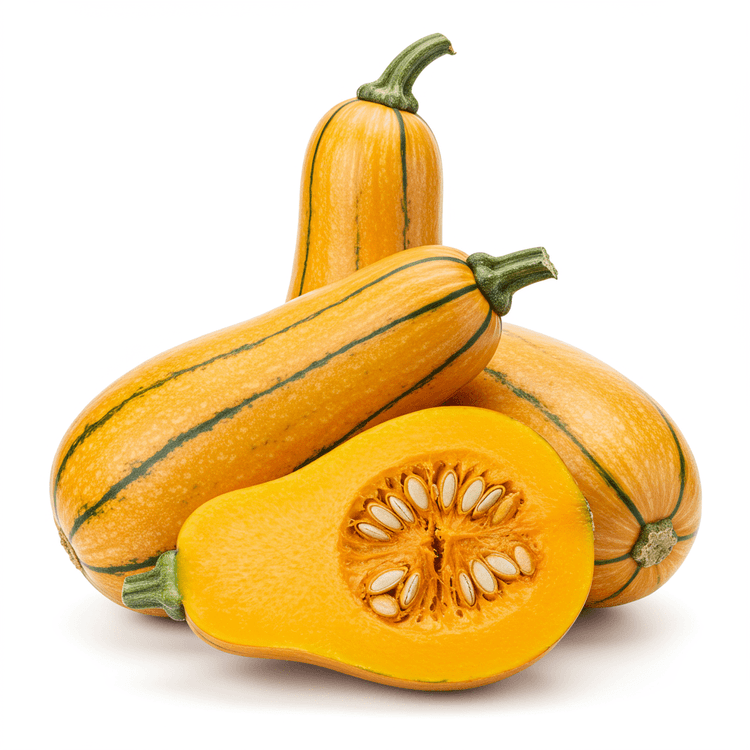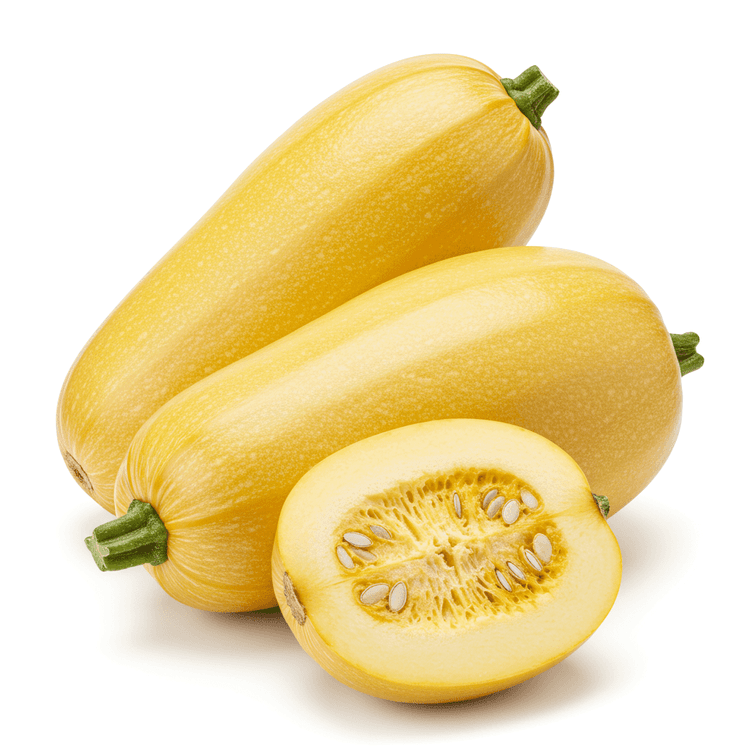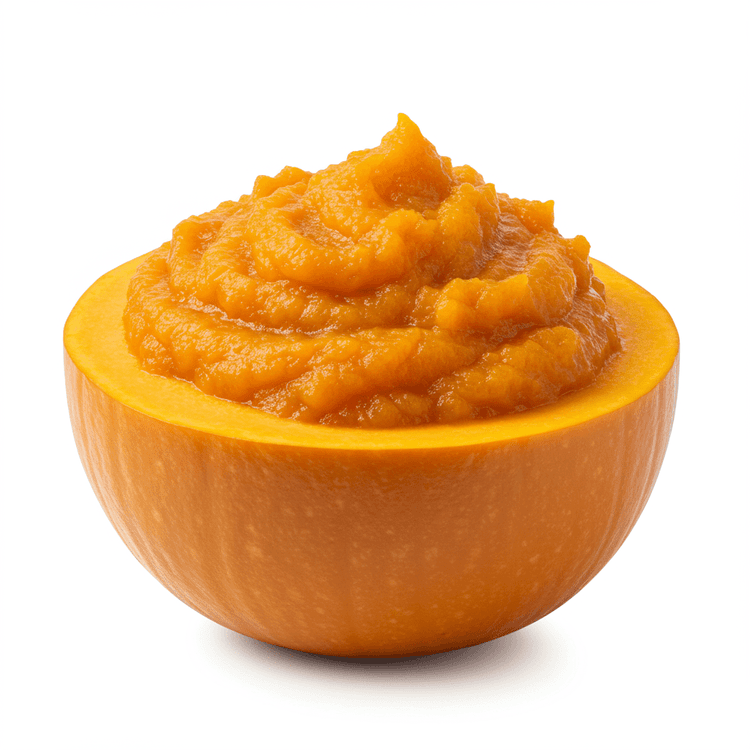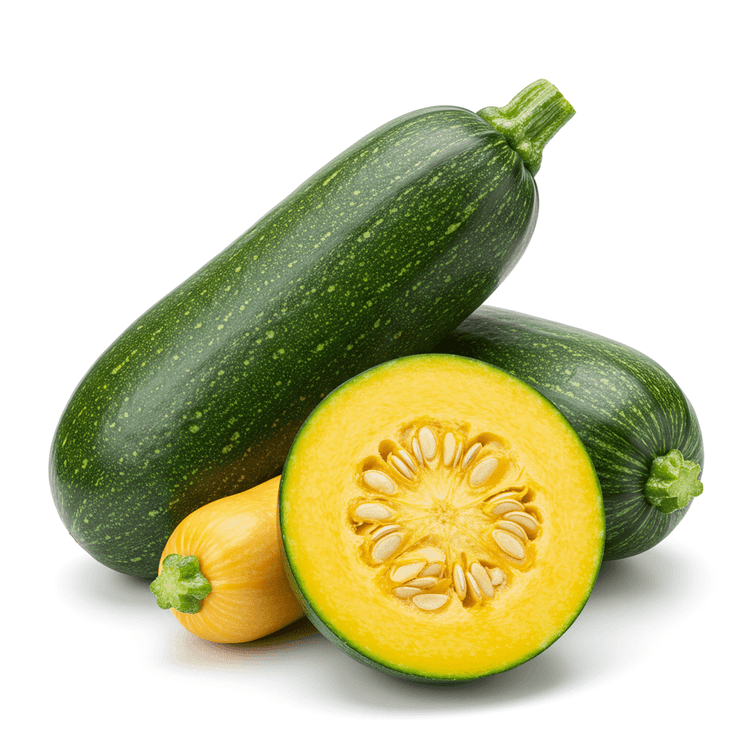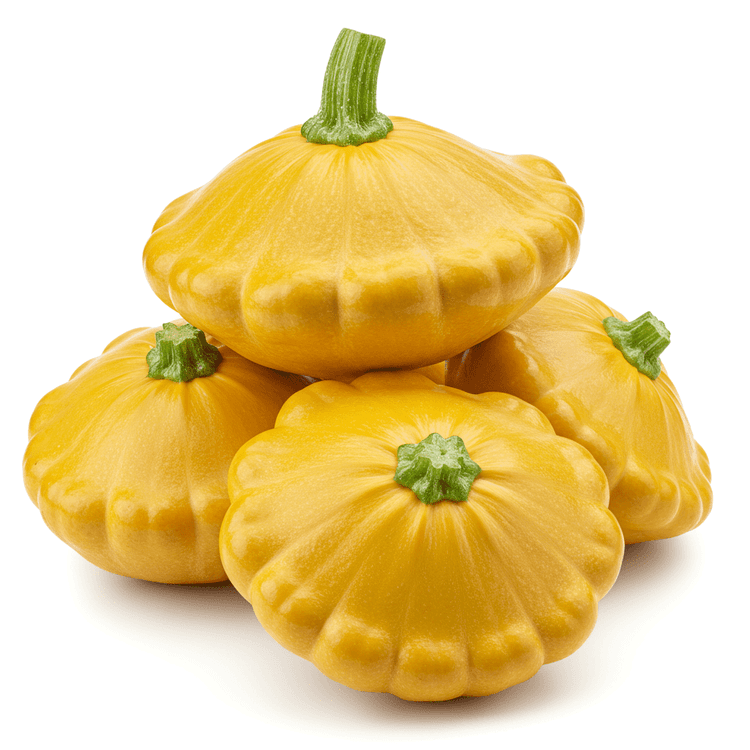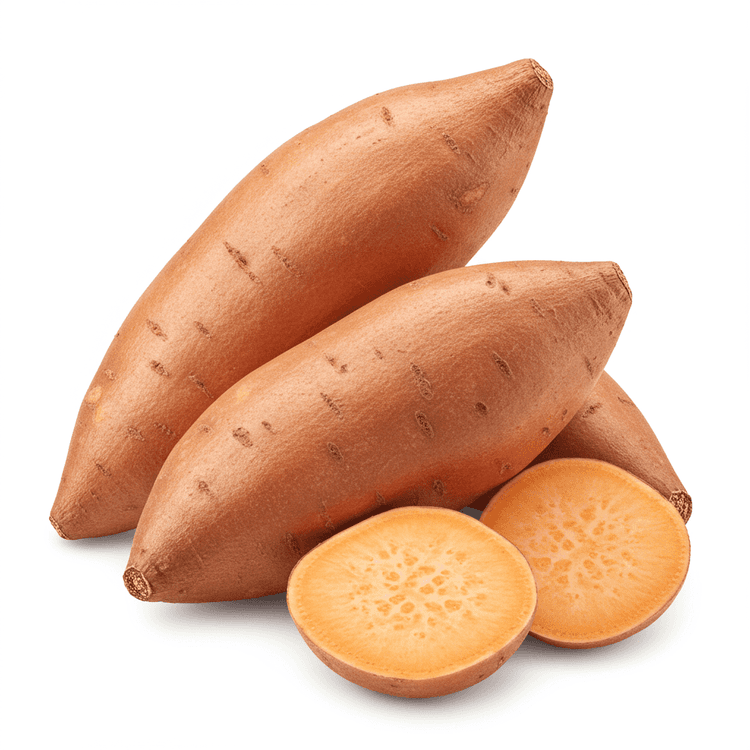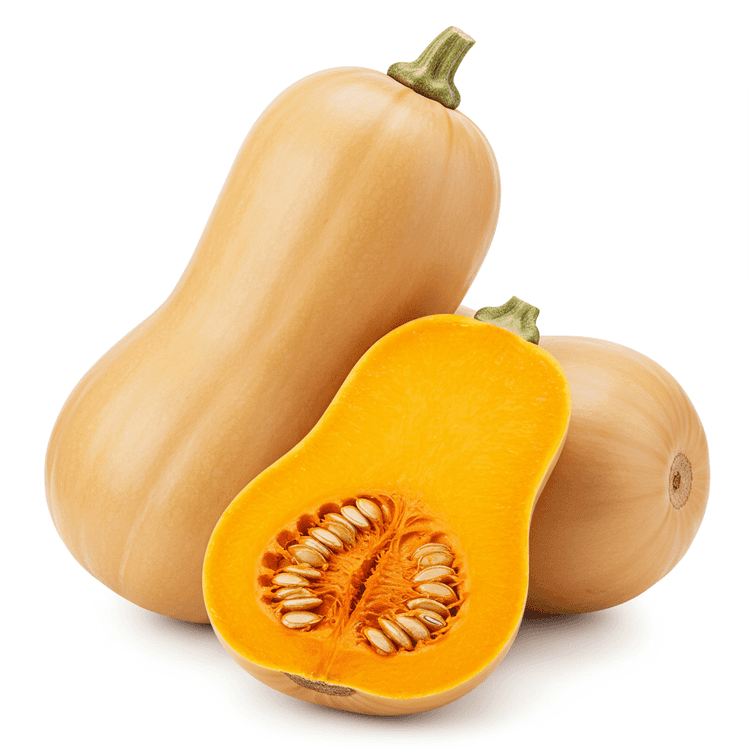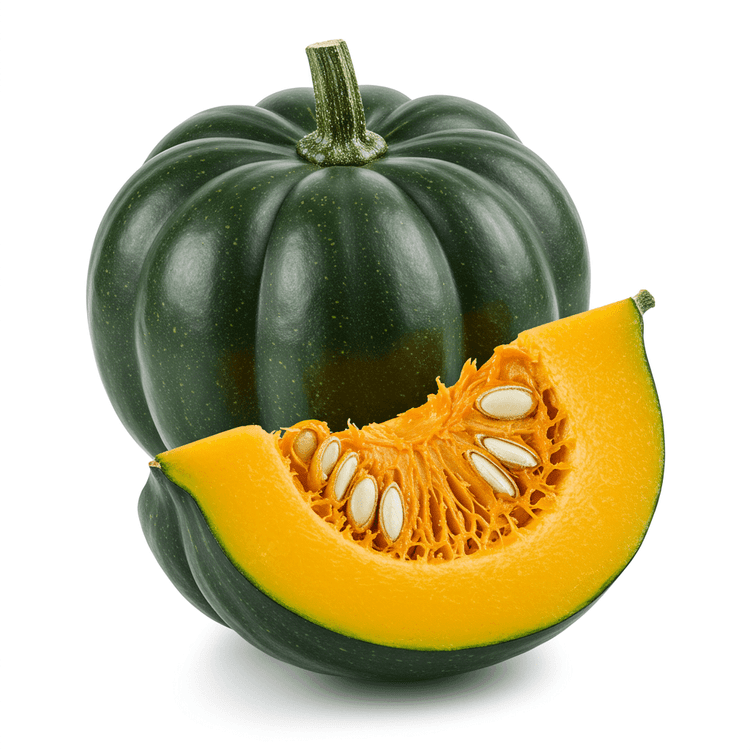
Acorn Squash
Acorn squash is a versatile winter squash known for its distinctive ridged, acorn-like shape and dark green skin, often featuring patches of orange. When cooked, the vibrant orange flesh offers a subtly sweet and nutty flavor, with a tender yet firm texture. It's a great source of fiber and vitamins. Discover creative ways to use acorn squash in your favorite fall recipes. Looking for easy acorn squash recipes? This nutritious and delicious squash is perfect roasted, stuffed, or pureed.
Common Uses
- Roasting acorn squash halves with butter and brown sugar creates a simple yet satisfying side dish that highlights its natural sweetness. Many recipes involve roasting in the oven with herbs and spices for a flavorful main dish or side. Roasting brings out the best in acorn squash flavor.
- Stuffed acorn squash makes a hearty and visually appealing meal. The cavity can be filled with a variety of ingredients like grains, vegetables, sausage, or cranberries for a balanced and flavorful dish, the skin acts as a bowl.
- Acorn squash puree can be incorporated into soups, stews, and sauces, adding a creamy texture and subtle sweetness. Many home cooks find it is a perfect way to thicken soups and provide a nutritional boost.
- Diced acorn squash can be added to salads or grain bowls for a boost of flavor and nutrients. Its firm texture holds up well alongside other ingredients. Many great fall salad recipes are a great use for cubed or diced acorn squash.
- Acorn squash can be used in baked goods, such as muffins and breads, adding moisture and a subtle sweetness.
- It can also be used to make a wonderful flavorful pasta sauce, often combined with ricotta or parmesan cheese.
Nutrition (per serving)
Nutrition (per serving)
Calories
56.9kcal (2.84%)
Protein
1.5g (2.92%)
Carbs
14.7g (5.36%)
Sugars
2.2g (4.42%)
Healthy Fat
0.1g
Unhealthy Fat
0.0g
% Daily Value based on a 2000 calorie diet
Nutrition (per serving)
Calories
56.9kcal (2.84%)
Protein
1.5g (2.92%)
Carbs
14.7g (5.36%)
Sugars
2.2g (4.42%)
Healthy Fat
0.1g
Unhealthy Fat
0.0g
% Daily Value based on a 2000 calorie diet
Health Benefits
- Rich in vitamins and minerals, including Vitamin A, Vitamin C, potassium, and magnesium, supporting overall health.
- High in fiber, promoting healthy digestion, regular bowel movements, and gut health.
- Contains antioxidants that help protect against cellular damage from free radicals, reducing the risk of chronic diseases.
- A good source of complex carbohydrates, providing sustained energy and helping to regulate blood sugar levels.
- Low in calories, making it a healthy and satisfying addition to a balanced diet for weight management.
- Supports eye health due to its high Vitamin A content.
Substitutes
Chefadora AI is here.
Experience smarter, stress-free cooking.
Storage Tips
Acorn squash should be stored in a cool, dry, and dark place, like a pantry or cellar. Whole, uncut acorn squash can last for several months when stored properly. Avoid storing near apples or pears, as they release ethylene gas, which can shorten the squash's shelf life. Once cut, wrap the squash tightly in plastic wrap and store it in the refrigerator, where it will remain fresh for up to 5 days. Cooked acorn squash can also be refrigerated for up to 3-4 days in an airtight container or frozen for longer storage.
Marnirni-apinthi Building, Lot Fourteen,
North Terrace, Adelaide, South Australia, 5000
Australia
